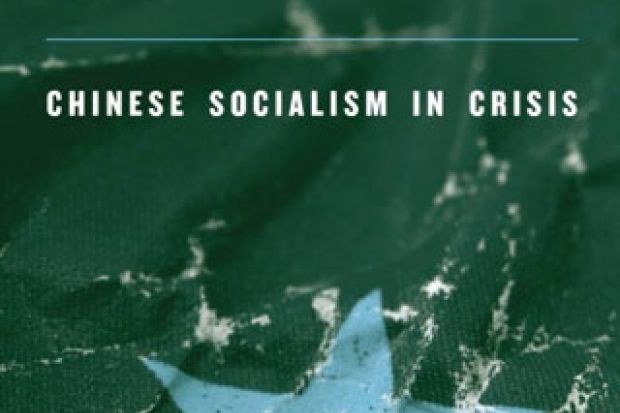Yiching Wu, professor of East Asian studies, history and anthropology at the University of Toronto, has used his multidisciplinary and (somewhat overemployed) theoretical talents to look in a new way at what the Chinese Communist Party and Wu himself term the greatest tragedy that has afflicted China since Mao Zedong’s victory in 1949 – and to consider its outcomes. As he says, and as he has personally experienced inside China, the regime treats the years 1966-76 as virtually unmentionable and not to be studied.
What actually happened, Wu contends – largely on the basis of documents that have been unavailable to previous scholars – is that the Cultural Revolution was not merely a decade of Mao’s disciples smashing his enemies. “Margins” in his title does not imply, he makes plain, some peripheral place or group, but millions of young people longing for equality and forms of democracy.
These longings and contentions, expressed in songs, wall posters and demonstrations rather than in violence, were later to find voice and action at Democracy Wall in 1978-79, and again in the spring of 1989, in Tiananmen Square in Beijing and all over China. In short, Wu writes: “The Cultural Revolution left a significant mark on popular protests in post-Mao China.” Hence its suppression in China today as a subject of interest and investigation: Deng Xiaoping directed that certain historical problems should be solved in “general terms rather than to fuss about the particulars”. But what is regrettable, Wu emphasises, is that until recently some particulars were untreated by many Western scholarly authorities.
To deal with the calls for a freer economy that are being made by urban and rural Chinese, the post-Mao Communist Party, led by Deng, gave permission for peasants to cultivate “private plots”. Wu argues, however, that since then, the ruling elite has kept control not only of the political structure – to maintain what it calls “stability” – but also of the economy, “thus transforming one of the world’s poorest but most egalitarian societies [the result of the Maoist revolution] to one of the fastest growing but most unequal economies”.
This has resulted in “the unholy alliance between capital and state power” eloquently described in Kerry Brown’s recent book The New Emperors: Power and the Princelings in China. In one of his few apropos invocations of theory, Wu quotes Antonio Gramsci’s notion of the “passive revolution”, that is, the “continuous reorganization of the state and the economy in order to preserve the domination of the many by the few”.
And it is here that Wu explains, and better than I have seen it explained elsewhere, why China is so attractive to foreign investors when there are, after all, many other countries in the world where labour is at least as cheap. In China, in addition to a relatively well-educated and healthy labour force, the Chinese Communist Party can guarantee “an authoritarian state apparatus that relentlessly prevents labour self-organization and suppresses popular unrest”. It was, in Wu’s view, the Maoist period that “laid the foundation feats and contradictions of the reform era”.
Mao would have hated this outcome – but his gigantic portrait still gazes down from the Forbidden City on to Tiananmen Square.
The Cultural Revolution at the Margins: Chinese Socialism in Crisis
By Yiching Wu
Harvard University Press, 368pp, £36.95
ISBN 9780674728790
Published June 2014
Register to continue
Why register?
- Registration is free and only takes a moment
- Once registered, you can read 3 articles a month
- Sign up for our newsletter
Subscribe
Or subscribe for unlimited access to:
- Unlimited access to news, views, insights & reviews
- Digital editions
- Digital access to THE’s university and college rankings analysis
Already registered or a current subscriber?





